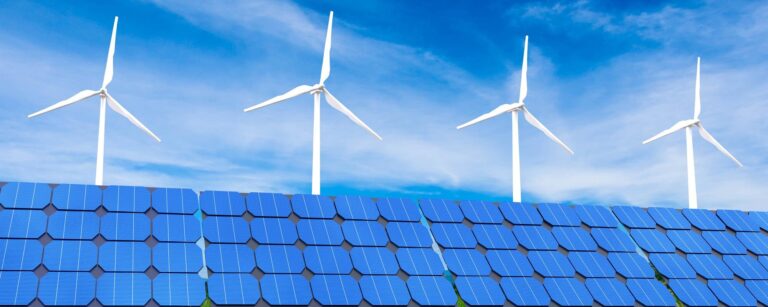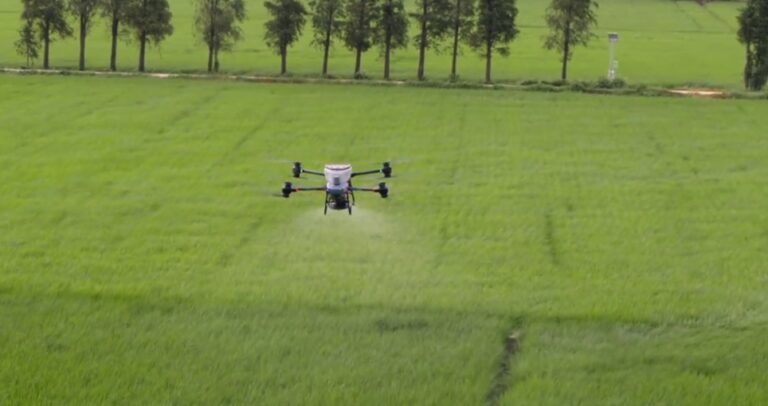A Comprehensive Guide to Agriculture Drone Services Pricing: Investing in Your Farm’s Future
In the rapidly evolving world of agriculture, integrating technology like drones can be a game-changer for enhancing productivity and sustainability. At Precision Drone LLC, we specialize in offering state-of-the-art agricultural drone services that empower farmers and conservationists to monitor crops, manage resources, and conduct detailed surveys with precision. Understanding agriculture drone services pricing is crucial for any farm looking to invest in these innovative solutions, as it can significantly impact budgeting and operational efficiency. In this guide, we will delve into the factors influencing pricing, explore the benefits of drone technology, and provide insights on how to make the most of these services for your farm’s future. Join us as we navigate the essentials of investing in drone services to elevate your agricultural practices.
Understanding Agricultural Drone Services
Understanding how drones fit into modern farming is essential for fully grasping their potential impact. As technology advances, drones have become an integral part of agricultural operations, offering numerous benefits and specialized services tailored to meet diverse farming needs.
The Role of Drones in Modern Farming
Drones play a pivotal role in transforming traditional farming methods into more efficient and data-driven practices. By providing aerial views and data collection capabilities, drones enable farmers to gain insights into crop health, soil conditions, and resource allocation.
Drones enhance precision agriculture, allowing farmers to apply water, pesticides, and fertilizers only where needed. This targeted approach not only boosts productivity but also minimizes environmental impact. Furthermore, drones can cover large areas quickly, reducing the time and labor traditionally required for field inspections.
The integration of drones in farming is also advancing through innovations like multispectral cameras and GPS technology, which help in precise mapping and monitoring. The overall effect is a streamlined farming process that leverages technology for better results.
Key Benefits of Drone Technology
Drone technology offers numerous benefits for the agricultural sector. Firstly, precision is significantly improved, allowing for better management of inputs like water and fertilizers.
Moreover, drones provide real-time data that aids in informed decision-making. This data can help predict crop yields, detect diseases early, and assess soil health. As a result, farmers can optimize their operations and improve yields.
Drones also contribute to cost savings. By reducing the need for manual labor and minimizing input wastage, they help lower operational expenses. Overall, drones enhance farming efficiency and sustainability through precise and timely interventions.
Types of Drone Services Offered
Farmers have access to a variety of drone services that cater to different needs. Common services include crop scouting, field mapping, and spraying applications.
-
Crop Scouting: Drones equipped with cameras identify crop issues like pests or diseases.
-
Field Mapping: High-resolution imagery helps create accurate maps for better farm management.
-
Spraying Applications: Drones provide targeted delivery of pesticides or fertilizers.
These services are customizable, allowing farmers to select specific options that align with their operational goals and budget constraints.
Factors Influencing Agriculture Drone Services Pricing
Several factors influence the pricing of agriculture drone services. These factors range from equipment and technology costs to customization needs, which collectively impact the overall investment farmers must consider.
Equipment and Technology Costs
Equipment costs are a significant factor in agriculture drone services pricing. Factors such as drone type, camera quality, and software capabilities can all contribute to the overall cost.
Advanced drones with features like multispectral imaging or GPS navigation tend to be more expensive but offer superior data and analytics. Investing in high-quality equipment can lead to better precision and efficiency in farm management.
It’s essential for farmers to evaluate these costs against the potential benefits, ensuring that the investment aligns with their long-term agricultural goals.
Service and Maintenance Expenses
The ongoing expenses associated with service and maintenance also impact pricing. Regular drone maintenance ensures optimal performance and longevity, but it comes with associated costs.
Farmers need to budget for routine maintenance, software updates, and possible repairs. These costs may vary depending on the complexity of the drone and the service provider’s offerings.
Selecting a reputable provider with transparent pricing can help in managing these expenses effectively, ensuring sustained service quality over time.
Customization and Specific Needs
Customization options allow farmers to tailor drone services to meet their specific agricultural requirements. However, this flexibility can influence pricing.
Whether it’s adjusting flight patterns, integrating specific sensors, or incorporating additional data analytics, each customization can add to the cost. Farmers should weigh the benefits of tailored services against the price, ensuring they receive value for their investment.
Understanding the specific needs of their farm can help farmers make informed decisions about which customizations are truly beneficial.
Evaluating the Investment in Drone Services
Evaluating the investment in drone services involves considering both the immediate and long-term benefits. Farmers need to conduct a thorough cost-benefit analysis to determine the value drones bring to their operations.
Cost-Benefit Analysis for Farmers
A cost-benefit analysis helps farmers assess whether investing in drone services is financially viable. This process involves examining the costs of purchase or leasing, operation, and maintenance against the anticipated increases in productivity and efficiency.
-
Initial Costs: Equipment purchase or lease prices.
-
Operational Costs: Expenses related to drone operation and data management.
-
Benefits: Increased yields, reduced input costs, and improved resource management.
By comparing these factors, farmers can make informed decisions about the potential return on investment from drone services.
Long-Term Savings and Efficiency
In the long term, drones can lead to significant savings and efficiency improvements. While the initial investment may be substantial, the reduction in manual labor and optimization of inputs can lower operational costs over time.
Drones also facilitate better decision-making through data-driven insights, leading to more strategic planning and resource allocation. These efficiencies contribute to increased profitability and sustainability in the agricultural sector.
Farmers who adopt drone technology early may gain a competitive edge through enhanced operational capabilities, positioning themselves for future success.
Case Studies and Success Stories
Real-world examples highlight the transformative impact drones have on farming. One example is a farm that integrated drones for crop monitoring and saw yield increases of up to 20%.
-
Case Study 1: Increased yields through precise water and fertilizer application.
-
Case Study 2: Early pest detection and mitigation, reducing crop losses.
-
Case Study 3: Enhanced data collection leading to optimized planting strategies.
These success stories underscore the tangible benefits of drone technology, providing a compelling case for investment.
Choosing the Right Drone Service Provider
Selecting the right drone service provider is crucial for maximizing the benefits of drone technology. Factors such as reputation, service offerings, and pricing should all be considered during the selection process.
Important Criteria for Selection
When choosing a provider, farmers should evaluate several key criteria:
-
Experience: The provider’s track record and expertise in agricultural drone services.
-
Service Range: The variety of services offered and their alignment with farm needs.
-
Pricing: Transparency in pricing and potential hidden costs.
These criteria help ensure that farmers select a provider who can deliver reliable and value-driven services.
Comparing Different Providers
To find the best fit, farmers should compare different providers. This process involves assessing service quality, customer reviews, and pricing models.
A comparison table can be useful:
|
Provider |
Experience |
Services Offered |
Pricing |
|---|---|---|---|
|
Provider A |
5 years |
Mapping, Scouting |
Moderate |
|
Provider B |
3 years |
Scouting, Spraying |
Competitive |
|
Provider C |
7 years |
Full Service |
Premium |
This structured approach aids in identifying a provider that offers the best balance of quality and value.
Questions to Ask Before Hiring
Farmers should prepare a list of questions when considering a drone service provider:
-
What is your experience with agricultural drone services?
-
Can you provide references or case studies?
-
How do you handle service and maintenance?
These questions help clarify the provider’s capabilities and ensure alignment with the farmer’s expectations.
Future Trends in Agricultural Drone Services
The future of agricultural drone services is promising, with emerging technologies set to revolutionize farming. Staying informed about these trends can help farmers adapt and thrive in a changing landscape.
Emerging Technologies and Innovations
Emerging technologies are poised to enhance drone capabilities. Innovations like AI, machine learning, and advanced sensors are making drones smarter and more autonomous.
These technologies improve data accuracy and processing speed, enabling more precise agricultural practices. By embracing these advancements, farmers can further optimize their operations and achieve better outcomes.
Keeping abreast of technological trends ensures that farmers remain competitive and at the forefront of modern agriculture.
Impact on Sustainability and Conservation
Drones have a significant impact on sustainability and conservation efforts. By promoting precision agriculture, they help reduce resource wastage and environmental impact.
Through targeted interventions and data-driven insights, drones support sustainable farming practices that align with conservation goals. This shift not only benefits the environment but also enhances the long-term viability of agricultural operations.
Farmers committed to sustainability can leverage drone technology to achieve both environmental and economic benefits.
Adapting to Changing Agricultural Needs
As agriculture evolves, drone services must adapt to meet new challenges. This adaptability ensures continued relevance and effectiveness in addressing changing agricultural needs.
-
Flexibility: Customizable services that evolve with farm requirements.
-
Innovation: Continuous integration of new technologies for enhanced performance.
-
Collaboration: Working with farmers to develop tailored solutions.
By staying adaptable, drone services can continue to provide valuable support to farmers, helping them navigate the future of agriculture successfully.





